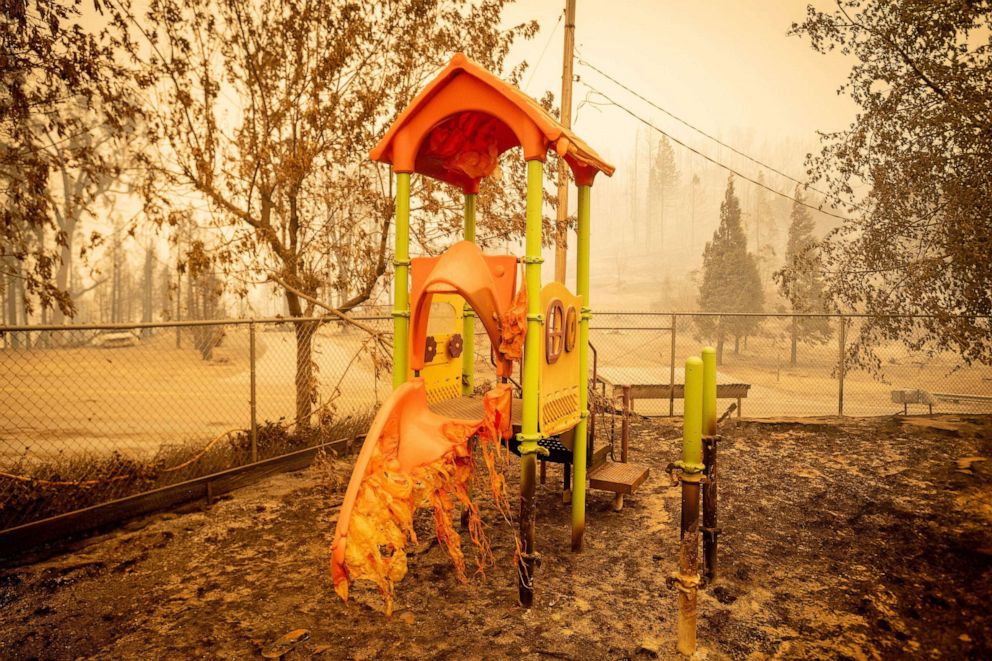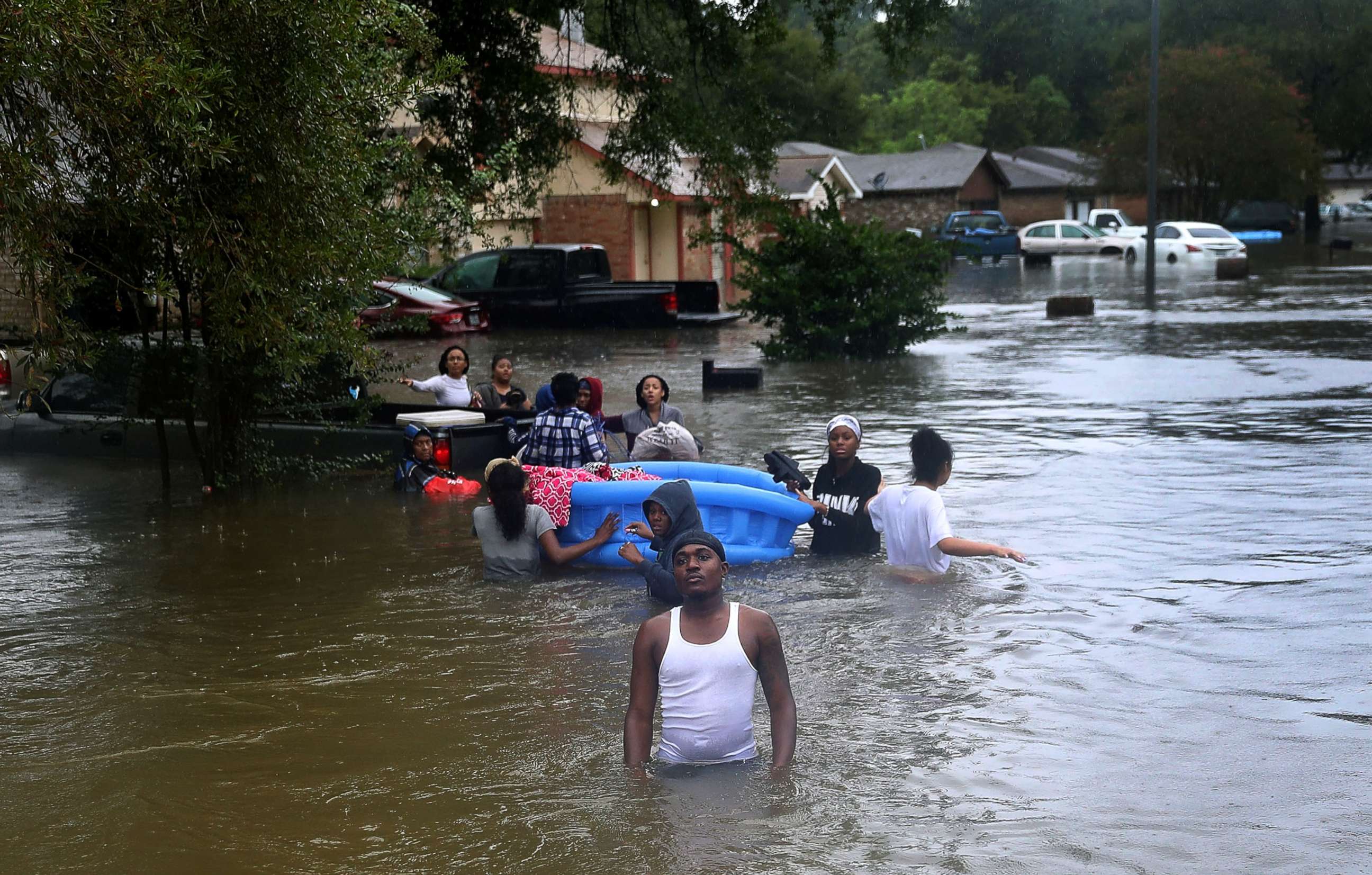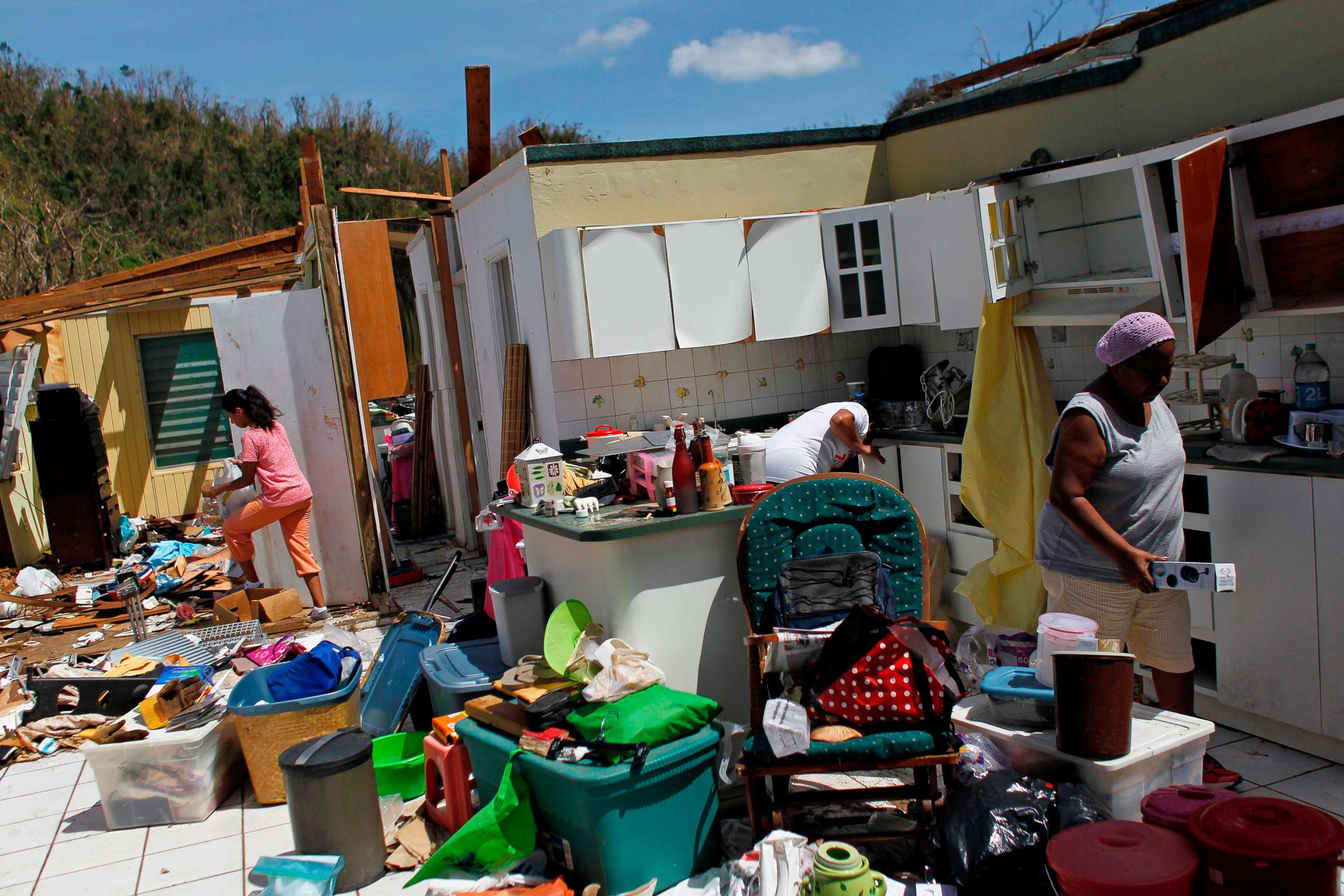Kids speak out on what it is like growing up victims of climate change
Environmental disasters have shaped the lives of children across the country.
Devastating hurricanes, wildfires, droughts and other environmental disasters have been linked to climate change by researchers. The increased intensity and frequency of these disasters have caused mass death and destruction, shattering communities across the world.
The climate crisis was in full swing in 2020, and there's no sign of an end to the upward trend in global temperature extremes, according to a new report from the UN World Meteorological Organization. For those in locations particularly at risk, environmental tragedies continue to become part of life, perhaps leaving the most impact on children who have experienced climate change's relentless destruction.
"I want to have a present, I want to have a past," Isabel McCullough Valentín, an 18-year-old environmental activist, told ABC News. "Time has already passed for me to have a future where environmental justice will occur because I need it to occur now. I'm already going through the climate crisis."
Young people like Valentín have not only witnessed the effects of climate change on their own doorsteps but for some, these tragedies have also served as motivation in becoming climate activists.

California's harsh wildfires have traumatized a generation
"[Camp Fire in 2018] was the fire that leveled an entire city in northern California," Bucky Squier, 20, said in an interview with ABC News. "It was glowing in the distance. My community and the surrounding communities have pretty much never been the same."
Camp Fire was the most destructive wildfire in California history -- the Insurance Information Institute reports $10 billion in damages and Cal Fire said 85 people lost their lives due to the fire.
'I want to have a present, I want to have a past'
But for Squier, each season seems more destructive than the last, he said.
Squier, who was in high school at the time of the Camp Fire, was reminded daily of the havoc that Camp Fire wreaked on his town. "I was running cross country and it was my senior season and it was really hard to practice because of the smoke for weeks … and the air quality [was] too unhealthy to be outside," Squier said. Squier recalled orange skies in the summer and vacations where his family couldn't make it to the beach because a fire blocked their way.
"I know multiple people who lost their homes, I have friends who lost their homes in that fire," Squier said.
Every year, research shows that wildfires become more common and more destructive.
Climate change has been shown to impact California's wildfires. Since 1980, average temperatures have risen more than 2 degrees Fahrenheit, but precipitation has fallen roughly 30%, according to analysis from Stanford University. Those conditions have doubled the number of high-risk days that can ignite wildfires, the analysis showed.
California suffered some of its worst fires on record in the last decade, including the Tubbs Fire in 2017, the Camp Fire in 2018, and the LNU Lightning Complex fires in 2020, research from the Los Angeles Times showed.
"We're inheriting the earth, and we want it," Squier said. "We are in the midst of numerous environmental crises, from climate change, and air and water pollution to the destruction of ecosystems critical to all life on Earth ... We want to make it a more safe and equitable place for those who come after us."
Can Texas withstand another Hurricane Harvey?
Alice Liu, now 22, was a sophomore at Rice University when Hurricane Harvey hit Houston in 2017. The college campus didn't flood, so Liu watched from afar as homes were slowly destroyed by the floodwaters and as community members were rescued from their homes by neighbors on rickety canoes.
"It really helped me understand that the impacts of climate change are not an equalizer and in fact, they're sort of widening the gaps and existing disparities between these communities," Liu, an environmental activist with a local recovery group West Street Recovery, said.
'We're inheriting the earth, and we want it ... We want to make it a more safe and equitable place for those who come after us '
The National Weather Service lists Hurricane Harvey as the record-holder for the wettest tropical cyclone after it dumped more than 60 inches of rain. And according to research from the science journal Earth's Future, ocean heat values were at their highest on record globally and in the Gulf of Mexico. This helped sustain and intensify Harvey, as well as increased its rainfall on land.
Stronger wind speeds, warmer ocean and more hurricanes can all be traced back to climate change, research shows.
As a volunteer, Liu witnessed the impact of environmental destruction on communities of color and neighborhoods that are less economically privileged. Liu volunteered to "muck" homes, removing dirt and damaged furniture. When she visited predominantly white neighborhoods, she said the homeowners would throw out "anything that's wet."

When she would visit more impoverished locations, she said: "throwing furniture out isn't an option and we're basically trying to like salvage floorboards by peeling them out and putting them in the driveway to dry and then reuse again."
Liu said many families have not recovered at all and more recent storms, like 2019's Tropical Storm Imelda and the 2021 winter storm, have only added to the damage.
"These houses that are ... long term sort of disintegrating because there's not enough money to repair them," Liu said. "These houses are being flooded repeatedly without ever getting the chance to even recover from the original flood."
When asked if Texas was prepared for the next storm, Liu said no.
"Experiencing what a disaster the federal response was afterward and how inadequate it was in so many ways, like actually helping people recover from it -- I think absolutely changed my course as an organizer and actually inspired me to change my career in that direction as well," Liu said.
Hurricane Maria devastated an already-crumbling infrastructure
Valentín, the 18-year-old climate activist and student, says she's privileged to have lived in Viejo San Juan during Hurricane Maria in 2017. She said recovery efforts came swiftly to tourist areas. However, in other municipalities, she said the government failed to reach out.
To took days after the hurricane for federal relief reached the mainland. U.S. officials including the Trump administration were criticized for what was seen as a slow response to hurricane-battered Puerto Rico.

Though 64 people died as a direct result of the storm, an estimated 2,975 died as a result of its aftermath, according to Puerto Rico's most recent official counts based on a study published in August of 2018, conducted by George Washington University and the University of Puerto Rico.
"There's definitely some degree of trauma from the government of the United States actively neglecting Puerto Rico," Valentín said. "I've managed to turn that trauma into actions to try and help previous and current governments of the United States realize that Puerto Rico also needs assistance, and that we're their responsibility. Even if we don't want to be."
Hurricane Maria hit in September 2017 and was preceded by Hurricane Irma earlier that same month. Together, they flooded the archipelago, causing landslides and almost completely toppling the territory's already fragile electricity grid.
Climate change has been cited as a major contributor to Maria's unusually large rainfall in Puerto Rico by many researchers, including the Geophysical Research Letters. The back-to-back destruction left no time for recovery from Irma.
Growing up surrounded by nature, and watching hurricanes worsen annually as they pass over the islands of Puerto Rico, shaped Valentín's path into climate activism.
Valentín said life will never return to the way it was before Maria, and that the effects of climate change have permanently damaged the way of life for her community back home.
"I'm already going through the climate crisis. Water and erosion are already drowning my island because terrible infrastructures are making it so that houses collapse every day," Valentín said. "Marginalized communities everywhere are already facing the effects of the climate crisis. So, claiming that the climate crisis is something in the future, is inherently against those communities."
Morgan Winsor and Dr. Robin Ortiz contributed to this report.




